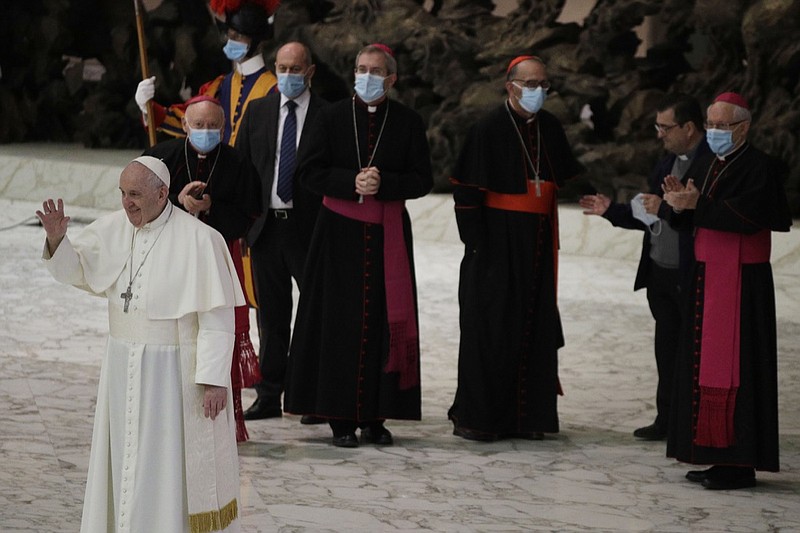No sooner had it been reported that Pope Francis had endorsed civil unions for same-sex couples that Vatican-watchers started arguing about whether this was a big deal.
The answer is yes, but not because it's a sign that the Roman Catholic Church will change its mind about same-sex marriage or renounce its teaching that "man and woman were created for one another." Catholics and others who see the pope's comments as a harbinger of such a dramatic change in doctrine will be disappointed.
Nor is it likely that the pope will alter his opposition to so-called gender ideology that in his view "denies the difference and reciprocity in nature of a man and a woman and envisages a society without sexual differences, thereby eliminating the anthropological basis of the family."
But neither can the pope's comments be dismissed as idle talk. In an interview for a new documentary titled "Francesco," the pope said: "Homosexual people have the right to be in a family. They are children of God. You can't kick someone out of a family, nor make their life miserable." He added, "What we have to have is a civil union law; that way they are legally covered."
The pope's endorsement of civil unions - a legally recognized partnership that falls short of marriage - isn't new. He supported civil unions when he was archbishop of Buenos Aires, and the National Catholic Reporter has excavated two interviews during his papacy in which Francis seemed to commend that arrangement and distinguish it from marriage.
Still, his position is a departure from a 2003 Vatican statement saying that "respect for homosexual persons cannot lead in any way to approval of homosexual behavior or to legal recognition of homosexual unions."
Beyond the endorsement of civil unions, the pope's words in the documentary sent a message of tolerance that could discourage discrimination against gays and lesbians by church and state - including in the U.S. Catholic Church.
Certainly the pope's comment that gay people "have the right to be in a family" should make Catholic schools and parishes think twice about firing teachers or other employees who are in a same-sex marriage.
On Nov. 4 the Supreme Court will hear arguments involving the refusal of a Catholic social service agency in Philadelphia to place foster children with same-sex couples. The agency is arguing that the city violated its religious freedom when it terminated the agency's contract because of that policy. Maybe, in light of the pope's words, the agency might want to rethink its position.
The Most Rev. David Zubik, the bishop of Pittsburgh, issued a statement Wednesday saying that the pope's comments "in no way signal a departure from the teaching of the Catholic Church concerning marriage or homosexuality. It speaks, rather, of a pastoral approach to these issues." The question is how far that pastoral approach will lead the church to change policies that cause harm to gay and lesbian Catholics.
Liberal Catholics will say the pope's sympathetic words for gays and lesbians can't be easily reconciled with the church's rejection of same-sex marriage, and they'll have a point. But the pope is signaling that he understands there is more to ministering to the faithful than affirming dogma that has been centuries in the making.
The pope's change of emphasis hasn't been lost on more rigid Catholics. Two years ago the pope was accused by Archbishop Carlo Maria Vigano, a retired Vatican diplomat, of consorting with prelates who belong to what Vigano called "the homosexual current in favor of subverting Catholic doctrine on homosexuality."
The Rev. James Martin, a Jesuit who has called on the church to be more welcoming of gay Catholics - and who has been vilified by Vigano - called the pope's latest comments "a major step forward in the church's support of LGBTQ people." That will depend on whether other Catholic leaders, including bishops in the United States, take the pope's words to heart and not look for ways to minimize his message.
The Los Angeles Times
